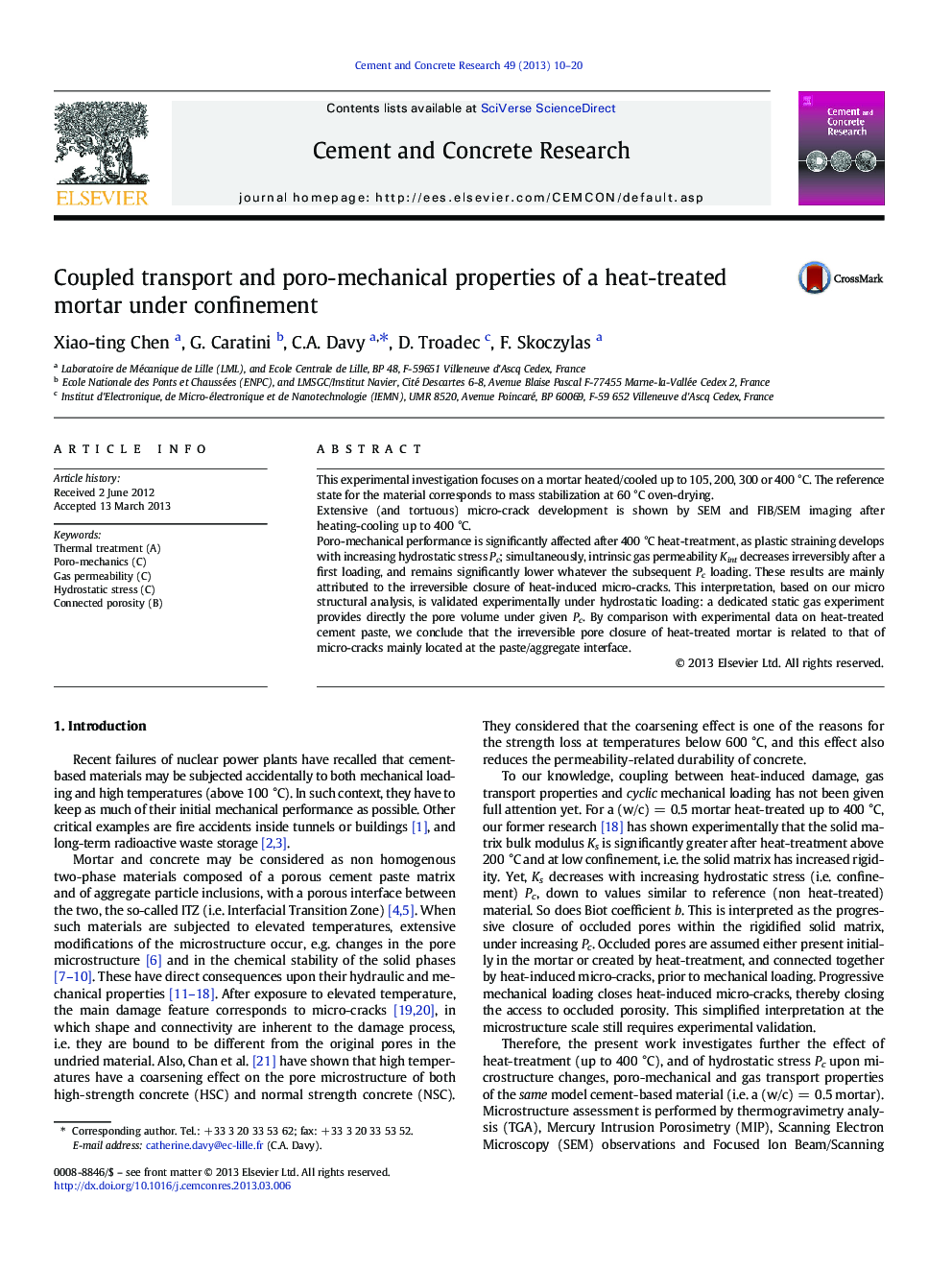| Article ID | Journal | Published Year | Pages | File Type |
|---|---|---|---|---|
| 1456476 | Cement and Concrete Research | 2013 | 11 Pages |
This experimental investigation focuses on a mortar heated/cooled up to 105, 200, 300 or 400 °C. The reference state for the material corresponds to mass stabilization at 60 °C oven-drying.Extensive (and tortuous) micro-crack development is shown by SEM and FIB/SEM imaging after heating-cooling up to 400 °C.Poro-mechanical performance is significantly affected after 400 °C heat-treatment, as plastic straining develops with increasing hydrostatic stress Pc; simultaneously, intrinsic gas permeability Kint decreases irreversibly after a first loading, and remains significantly lower whatever the subsequent Pc loading. These results are mainly attributed to the irreversible closure of heat-induced micro-cracks. This interpretation, based on our micro structural analysis, is validated experimentally under hydrostatic loading: a dedicated static gas experiment provides directly the pore volume under given Pc. By comparison with experimental data on heat-treated cement paste, we conclude that the irreversible pore closure of heat-treated mortar is related to that of micro-cracks mainly located at the paste/aggregate interface.
